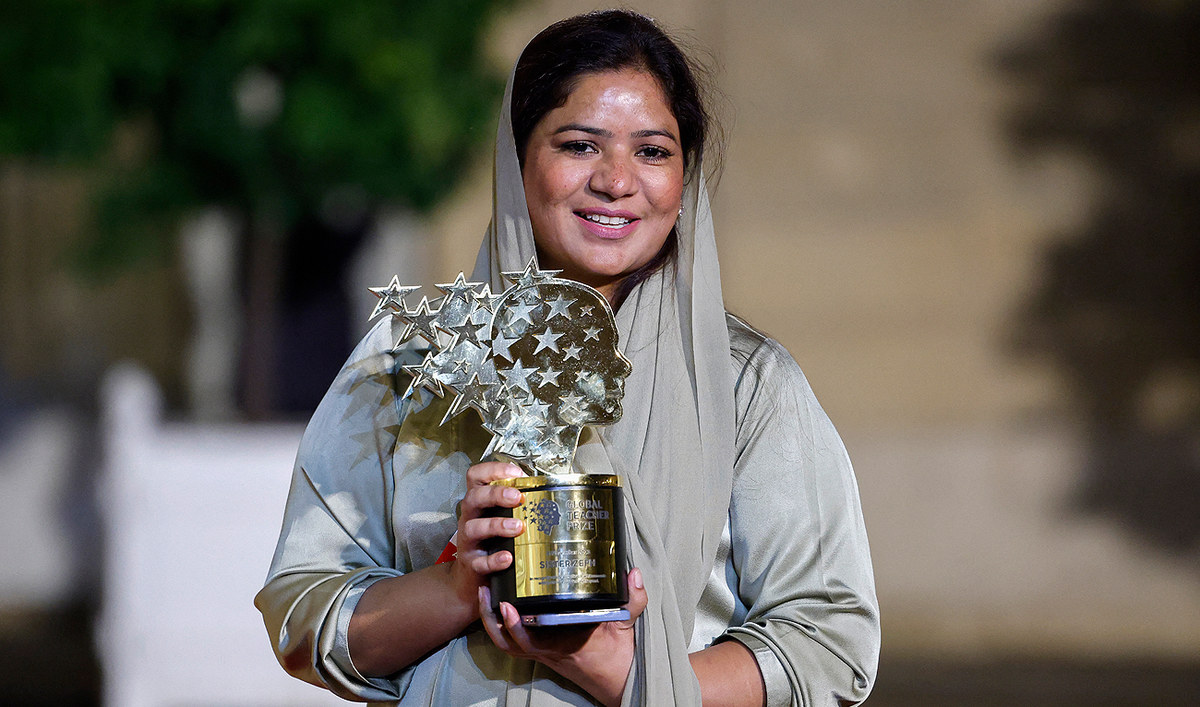ISLAMABAD: A Pakistani teacher who founded a school for underprivileged children in the courtyard of her house when she was still in her teens won the prestigious Global Teacher Award last week and plans to use the money to build a much bigger learning facility to educate greater number of students.
Education in small towns in Pakistan faces several challenges, including insufficient funding, inadequate infrastructure, teacher shortages and quality, gender disparities and high dropout rates.
Sister Zeph, who was born in Pakistan’s Gujranwala city, set up the school when she was 13 to help children whose parents could not afford to pay any fee. She worked eight-hour days to fund the school, then taught students for another four hours and then stayed up at night teaching herself.
Twenty-six years later, the school is housed in a brand-new building and provides free education for more than 200 underprivileged children.
“Teaching is not just a profession; it’s a vocation, a calling to inspire, nurture, and empower the next generation,” she was quoted as saying on the website of the Global Teacher Prize. “Let us work together to ensure that every child has the chance to learn, dream, and make a positive impact on our world.”
Sister Zeph won the $1 million prize on November 8 at UNESCO Headquarters in Paris.

Pakistani teacher Riffat Arif aka Sister Zeph, winner of the Varkey Foundation global Teacher Prize, poses upon her arrival at the dinner in honour of the Heads of State and Government and leaders of international organisations participating in the 6th Paris Peace Forum, at the presidential Elysee Palace in Paris on November 9, 2023. (AFP)
“This recognition is a reminder that when we work together, we can overcome the obstacles,” she noted. “It is a call to action, a call for us to redouble our efforts, and a call for the world to unite in our commitment to ensuring that every child, regardless of their background or circumstances, has access to a quality education.”
“I will use this platform to advocate for quality education, gender equality, and the empowerment of every child, especially those in marginalized communities,” she added. “We must continue to innovate, collaborate, and invest in education to shape a brighter future for all.”
The Pakistani teacher said she wanted to build a school and a shelter for orphans with the Global Teacher Prize fund where food would be grown on the property and teachers from all parts of the world would be invited to instruct children in a range of subjects.
Pakistan’s Malala Yousafzai, who is also the world’s youngest Nobel Peace Prize laureate, has also been working for education in her birth country and other parts of the world.















